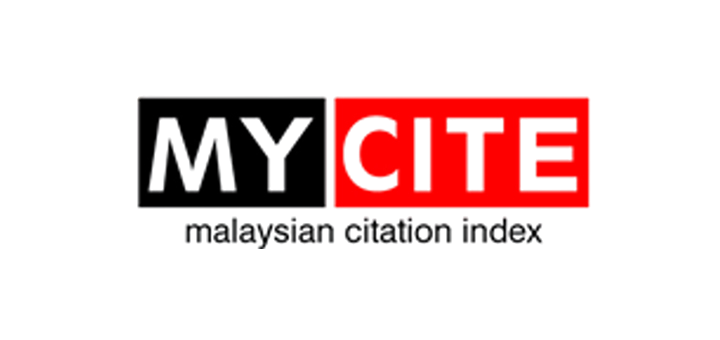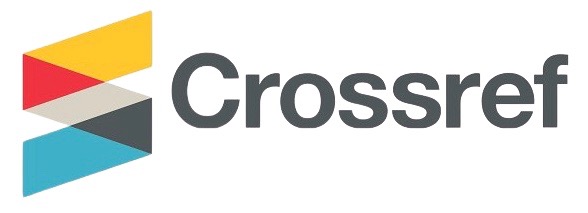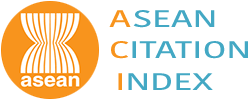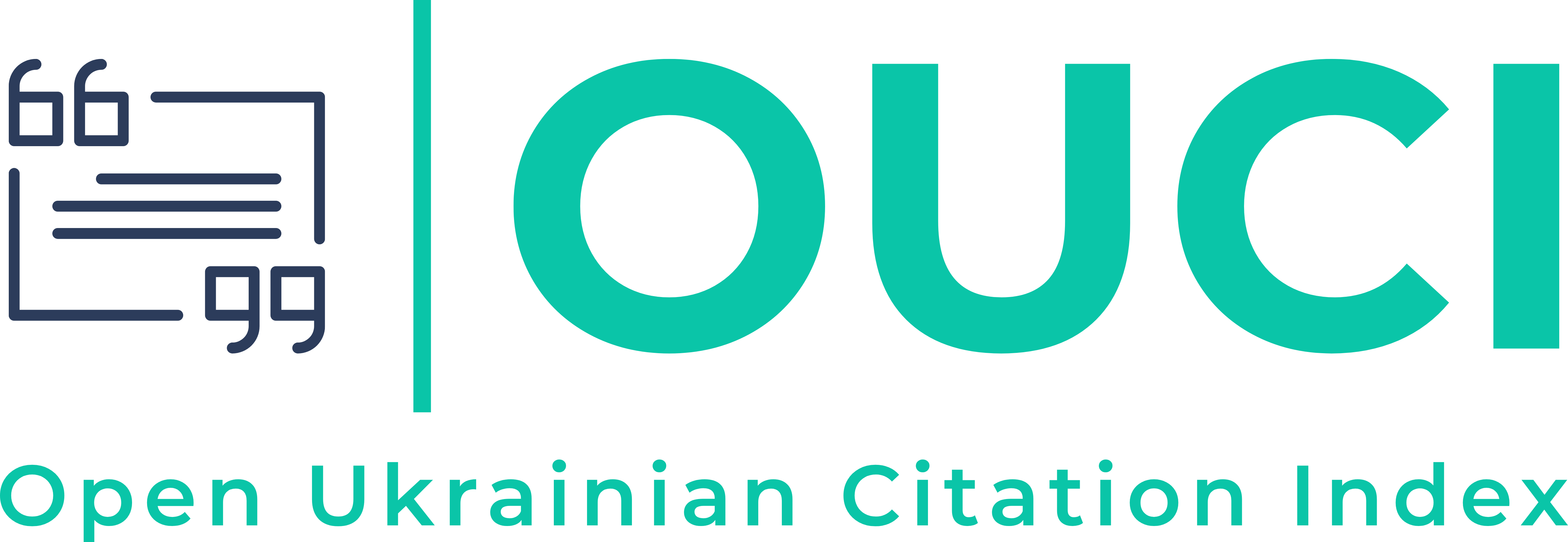Validating the Short-Form Health Literacy Questionnaire (HLS-SF12) and Assessing Health Literacy Among the Temiar Orang Asli
Abstract
Health literacy is essential for achieving positive health outcomes, particularly in marginalized communities. The Orang Asli, specifically the Temiar sub-tribe in Malaysia, face unique challenges due to geographic isolation and cultural barriers. The research focused on determining health literacy rates among the Temiar Orang Asli through the Health Literacy Short-From 12 (HLS-SF12) while testing its applicability for this population. Research was conducted through a cross-sectional study with 404 Temiar Orang Asli adults from Kuala Kangsar, Perak, Malaysia. The assessment of health literacy utilized the Malay version of the HLS-SF12 measurement tool. The tool's construct validity was evaluated through confirmatory factor analysis (CFA) while internal consistency was measured using Cronbach’s alpha. The study explored the relationships between sociodemographic characteristics and health literacy levels by using both simple and multiple linear regression analysis methods. Most participants (53.0%) demonstrated inadequate health literacy, while 31.4% had problematic levels. Only 13.4% had sufficient health literacy, and 2.2% achieved excellent levels. The model fit analysis yielded acceptable results (RMSEA = 0.08, GFI = 0.94, CFI = 0.94) while Cronbach’s alpha levels between 0.75 and 0.88 across domains showed that the assessment tool was valid and reliable for this population. Higher education emerged as the only independent predictor of improved health literacy in the multiple regression analysis (β = 4.08, 95% CI: 2.69 to 5.46, p < 0.001). These findings confirm that the HLS-SF12 tool effectively measures general health literacy for the Temiar Orang Asli community and highlight the need for culturally adapted health literacy initiatives, particularly those focused on educational outreach, to improve health outcomes in this vulnerable population.
Downloads
References
Ahmad, W., Sugathan, S., Ismail, S., Soe, M. M., & Ali, O. (2018). Cardiovascular risk factors in rural Malays and Aborigines in Perak, Malaysia; an alarming situation. Medical Forum Monthly, 29(12), 24–28. https://medicalforummonthly.com/index.php/mfm/article/view/3247
Chew, C. C., Lim, X. J., Low, L. L., Lau, K. M., Kari, M., Shamsudin, U. K., et al. (2022). The challenges in managing the growth of indigenous children in Perak State, Malaysia: A qualitative study. PLOS ONE, 17(3), e0265917. https://doi.org/10.1371/journal.pone.0265917
Coughlin, S. S., Vernon, M., Hatzigeorgiou, C., & George, V. (2020). Health literacy, social determinants of health, and disease prevention and control. Journal of Environmental Health Science, 6(1). https://www.ncbi.nlm.nih.gov/pmc/articles/PMC7889072/
Crengle, S., Luke, J. N., Lambert, M., Smylie, J. K., Reid, S., Harré-Hindmarsh, J., et al. (2018). Effect of a health literacy intervention trial on knowledge about cardiovascular disease medications among Indigenous peoples in Australia, Canada and New Zealand. BMJ Open, 8(1), e018569. https://doi.org/10.1136/bmjopen-2017-018569
Duong, T. V., Aringazina, A., Baisunova, G., Nurjanah, Pham, T. V., Pham, K. M., et al. (2017a). Measuring health literacy in Asia: Validation of the HLS-EU-Q47 survey tool in six Asian countries. Journal of Epidemiology, 27(2), 80–86. https://doi.org/10.1016/j.je.2016.09.005
Duong, T. V., Chang, P. W. S., Yang, S. H., Chen, M. C., Chao, W. T., Chen, T., et al. (2017b). A new comprehensive short-form health literacy survey tool for patients in general. Asian Nursing Research, 11(1), 30–35. https://doi.org/10.1016/j.anr.2017.02.001
Duong, T. V., Aringazina, A., Kayupova, G., Nurjanah, Pham, T. V., Pham, K. M., et al. (2019a). Development and validation of a new short-form health literacy instrument (HLS-SF12) for the general public in six Asian countries. Health Literacy Research and Practice, 3(2), e91–e102. https://doi.org/10.3928/24748307-20190225-01
Duong, T. V., Nguyen, T. T. P., Pham, K. M., Nguyen, K. T., Giap, M. H., Tran, T. D. X., et al. (2019b). Validation of the Short-Form Health Literacy Questionnaire (HLS-SF12) and its determinants among people living in rural areas in Vietnam. International Journal of Environmental Research and Public Health, 16(18), 3346. https://doi.org/10.3390/ijerph16183346
Ithnin, M., Mohamad Nor, N. A. U., Juliana, N., Mohd Effendy, N., & Mohd Rani, M. D. (2021). Health seeking behaviour among adult Orang Asli (Indigenous Peoples) from rural Negeri Sembilan, Malaysia: A mixed-methods study. Malaysian Journal of Public Health Medicine, 21(2), 348–358. https://mjphm.org/index.php/mjphm/article/view/1045
Ithnin, M., Nor, N., Juliana, N., Effendy, N. M., Sahar, M. A., & Abdullah, K. H. H. (2020). Knowledge, attitude and practices towards lifestyle-related non-communicable diseases (NCDs): A cross-sectional study among indigenous Orang Asli adults in Negeri Sembilan, Malaysia. International Medical Journal Malaysia, 19(2), 1–9. https://doi.org/10.31436/imjm.v19i2.1569
Jabatan Kemajuan Orang Asli (JAKOA). (2021). Data terbuka sektor awam – Laman web rasmi Jabatan Kemajuan Orang Asli. https://www.jakoa.gov.my/umum/data-terbuka-sektor-awam/
Kline, R. B. (2011). Principles and practice of structural equation modeling (3rd ed.). Guilford Press. https://books.google.com.my/books?id=mGf3Ex59AX0C
Mahmud, M. H., Baharudin, U. M., & Md Isa, Z. (2022). Diseases among Orang Asli community in Malaysia: A systematic review. BMC Public Health, 22, 2090. https://doi.org/10.1186/s12889-022-14449-2
Rheault, H., Coyer, F., Jones, L., & Bonner, A. (2019). Health literacy in Indigenous people with chronic disease living in remote Australia. BMC Health Services Research, 19, 523. https://doi.org/10.1186/s12913-019-4335-3
Sørensen, K., Van den Broucke, S., Fullam, J., Doyle, G., Pelikan, J., Slonska, Z., & Brand, H. (2012). Health literacy and public health: A systematic review and integration of definitions and models. BMC Public Health, 12, 80. https://doi.org/10.1186/1471-2458-12-80
Syed Hussain, T. P. R., Krishnasamy, D. S., & Hassan, A. A. G. (2017). Distribution and demography of the Orang Asli in Malaysia. International Journal of Humanities and Social Science Invention, 6(1), 24–45. http://www.ijhssi.org/papers/v6(1)/Version-2/F601024045.pdf
Yunus, R. M., Saman, M. S. A., Zubillah, A., Juni, K. B., Gaairibi, A. S. A., Yahaya, A. N., et al. (2020). Health literacy among urban Malaysian elders: A descriptive study. ASM Science Journal, 13(5), 6–12. https://www.akademisains.gov.my/asmsj/article/health-literacy-among-urban-malaysian-elders-a-descriptive-study/

















